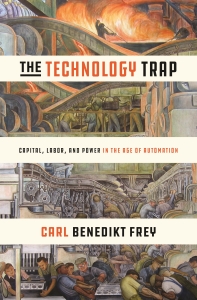Timefulness: Thinking Like a Geologist with Professor Marcia Bjornerud
Our planet’s history, from its initial formation to present day, spans over a long period of time. It is not easy to conceptually imagine such a large timescale and most of us adopt a narrow perspective of temporal proportion. This constricted view, according to professor Marcia Bjornerud underlies many of the environmental problems we are creating for ourselves. The lifespan of Earth can seem unfathomable compared to the brevity of human existence, but a narrow view of time makes it difficult for us to understand our roots in Earth’s history and the magnitude of our impact on the planet. Bjornerud, in her recent book “Timefulness: How Thinking Life a Geologist Can Help Save the World” stresses that an awareness of Earth’s temporal rhythms is critical to our planetary survival. I speak with Professor Marcia Bjornerud in this episode of Bridging the Gaps and we discuss fascinating research and intriguing ideas that she presents in this book. We explore in detail, one of the main points presented in this book, which is “how knowing the rhythms of Earth’s deep past and conceiving of time as a geologist does can give us the perspective we need for a more sustainable future”. Bjornerud emphasizes that overlapping rates of change in the Earth system — some fast some slow– require a poly-temporal worldview that she calls “timefulness”.
Marcia Bjornerud is professor of geology and environmental studies at Lawrence University. She is the author of Reading the Rocks: The Autobiography of the Earth and a contributing writer for Elements, the New Yorker’s science and technology blog.
“Timefulness: How Thinking Like a Geologist Can Help Save the World” presents a new way of thinking about our place in time, enabling us to make decisions on multigenerational timescales. “Timefulness reveals how knowing the rhythms of Earth’s deep past and conceiving of time as a geologist does can give us the perspective we need for a more sustainable future. Featuring illustrations by Haley Hagerman, this compelling book offers a new way of thinking about our place in time, showing how our everyday lives are shaped by processes that vastly predate us, and how our actions today will in turn have consequences that will outlast us by generations”.


Connect With Us